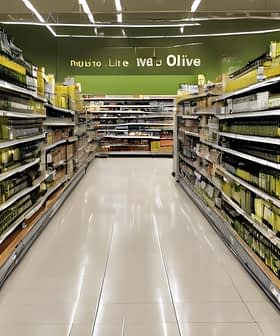The regional union of agricultural farmers (syndicat régional des agriculteurs) in Sfax, Tunisia called for the National Oil Office (Office National de l’Huile) to take swift action to regulate the export price of olives.
Faouzi Zayani, director of the union, declared that the falling price is due to a decrease in the export price for olives from 6,200 to 5,650 Tunisian Dinars per ton ($2,796 to $3,038). He appealed to the minister of agriculture to intervene and revise the price. Local olive producers have protested that the decreased price does not cover their production costs.
Tunisia had a record olive crop this year with an estimated 260,000 tons harvested, compared to only 70,000 tons last year. This represents a 370 percent increase, with Tunisia leading non-EU countries in olive production levels. The olive-growing region of Sfax accounts for 30 percent of Tunisia’s olive crop.
Meanwhile, at the end of last month the price of Tunisian extra virgin olive oil had risen to €2.88/kg, an increase of 24 percent compared to last year.
Tunisia’s olive oil exports have increased significantly in the past few years, representing 40 percent of Tunisia’s agricultural exports, and 10 percent of all national exports. It was estimated that this year there would be 170,000 tonnes of olive oil for export, which would bring in revenue in excess of 1 billion Tunisian Dinar ($538,289,540), according to the director of food industries.
However, despite this year’s bountiful crop, it seems that Tunisian olive farmers may get less than they bargained for.








